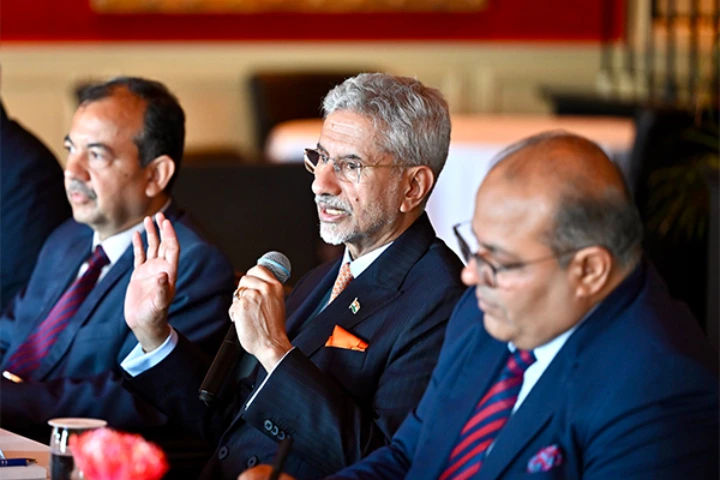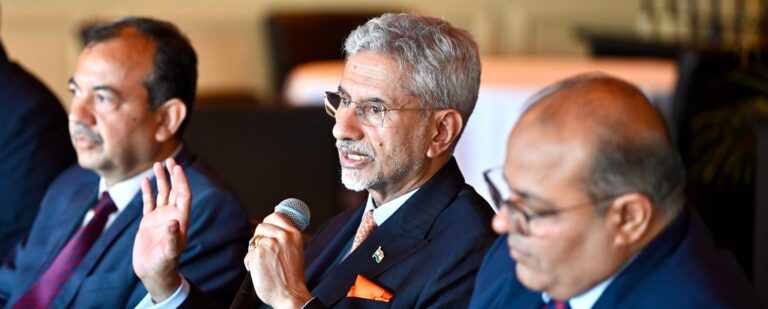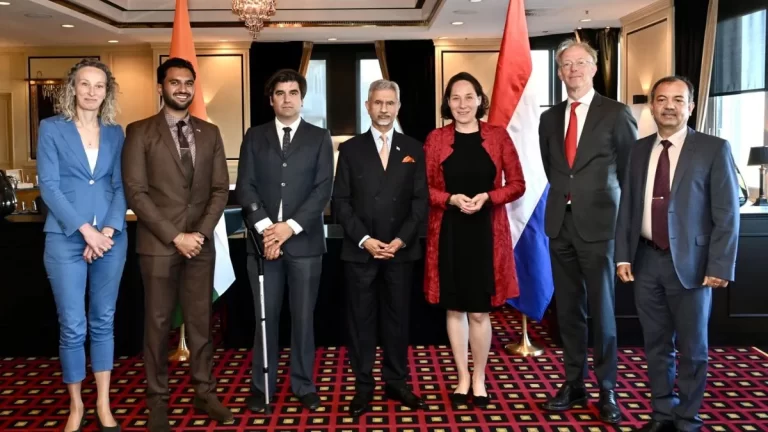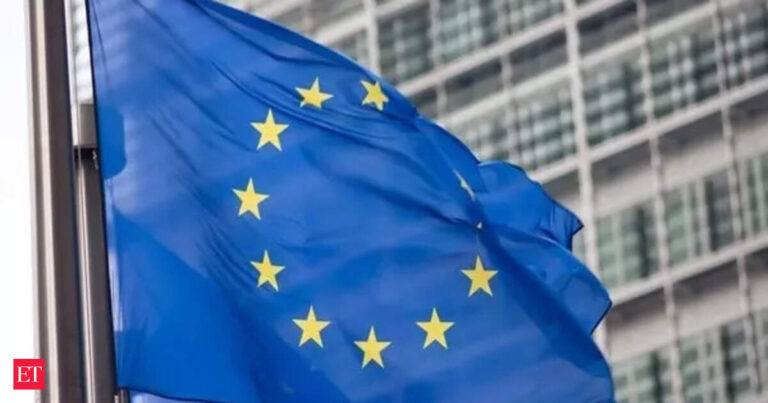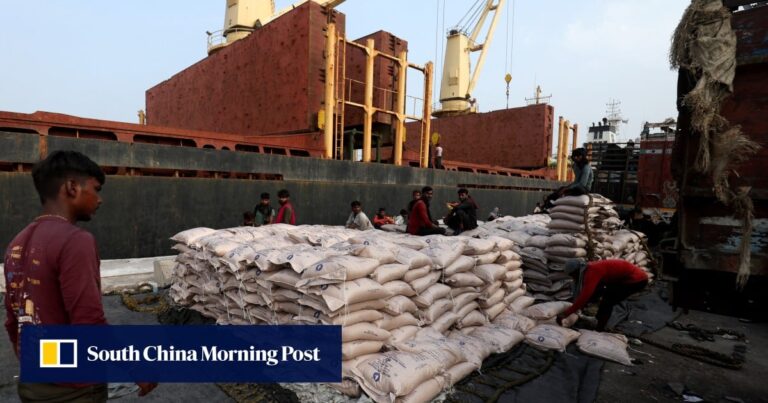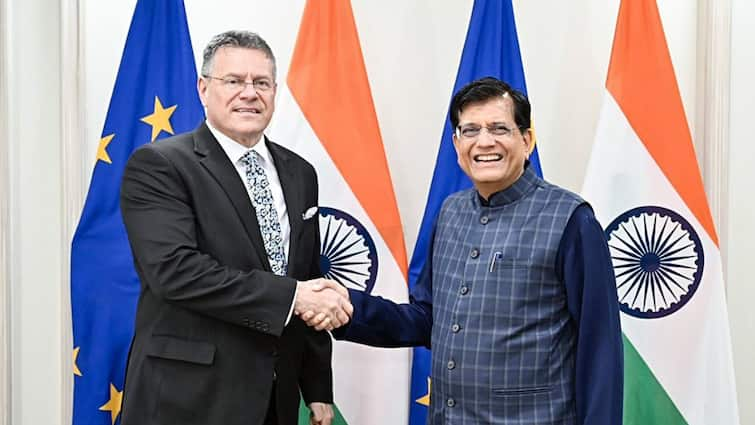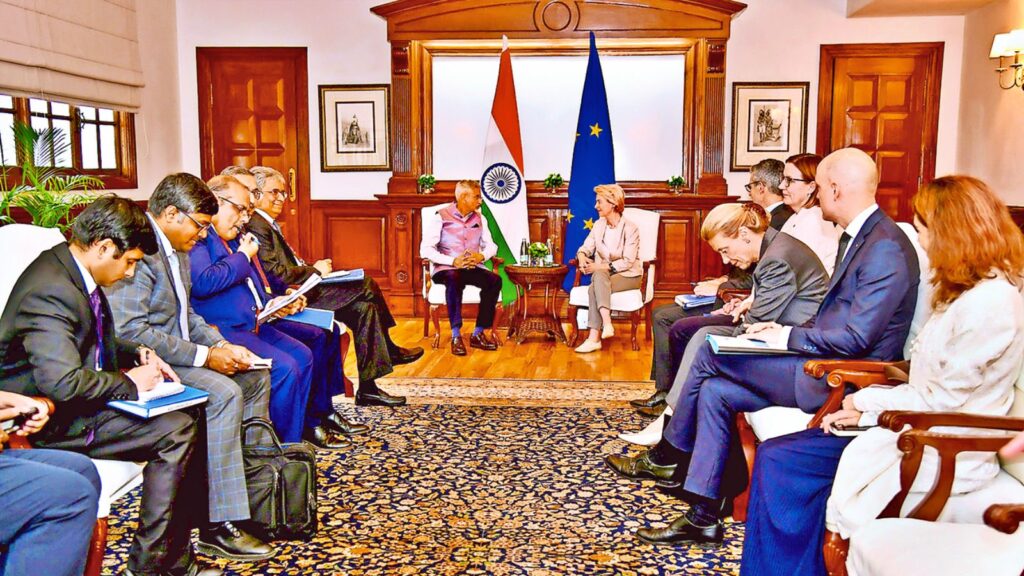
During the first series of negotiations on commercial transactions between India and the European Union after the visit of the college of EU commissioners in India last month, the two countries have made considerable progress in the standards on the standards which will guide the settlement of disputes within the framework of the Pact, but have not succeeded in making a significant breakthrough on the rules of origin, which will help determine the national source of a product.
In the midst of the increase in protectionism worldwide, Prime Minister Narendra Modi and Ursula von der Leyen, president of the European Commission, had announced that the two parties would aim to conclude the free trade agreement by the end of 2025. The two parties have been negotiating the agreement since July 2022 and have held ten sets of discussions. The next round is expected to start May 5 in New Delhi.
“The negotiators have made good progress, in particular on mediation. The main sections of the dispute settlement text are now considerably agreed. Intense discussions have taken place on the rules of origin but have not led to major breakthroughs,” said a report published by the European Union on the progress made during the tenth series of discussions.
“A particular objective has been given to chapters linked to market access. For the first time, sessions have taken place, by examining specific industries such as cars and medical devices from a holistic perspective, by attacking all obstacles that prevent market access, including prices, rules of origin and technical obstacles to trade (TBT), “said the report.
Specific discussions on cars and medical devices follow the Declaration of an EU official last month that the 27 -member block would not sign a commercial agreement without “substantial” access from India for the sale of European manufacturing cars. The emphasis on automobile exports is probably based on the current automotive crisis in the region. In October 2024, Volkswagen, based in Germany, announced its intention to close at least three of its German factories.
The EU report noted that “intense discussions took place on the rules of origin” but have led to no major breakthrough. The two parties discussed the rules specific to the product for several sectors, in particular: “processed agricultural products, fisheries, pharmaceutical products, chemicals, fertilizers, textiles and clothes, cars, wooden paste and paper.”
The report also indicated that limited progress has been made on technical regulations, market surveillance and technical discussions, adding that significant differences remain on a number of questions, including the incorporation of WTO provisions and annexes on pharmaceuticals and motor vehicles.
The story continues below this announcement
“The EU has raised the issue of India Quality Control Orders (QCOS),” said the report. QCOS block the import and sale of items that do not carry a Bureau of Indian Standards brand (BIS), and a number of countries have cited them as an obstacle to trade.
Last month, Ursula von der Leyen said that the free trade agreement between the EU and India would be the greatest agreement in the world. Without naming China, she suggested that India and the EU could help herself to reach “the common goal” to deactivate their savings in sensitive sectors such as batteries, pharmaceuticals, semiconductors, clean hydrogen and defense.
© The Indian Express PVT Ltd


